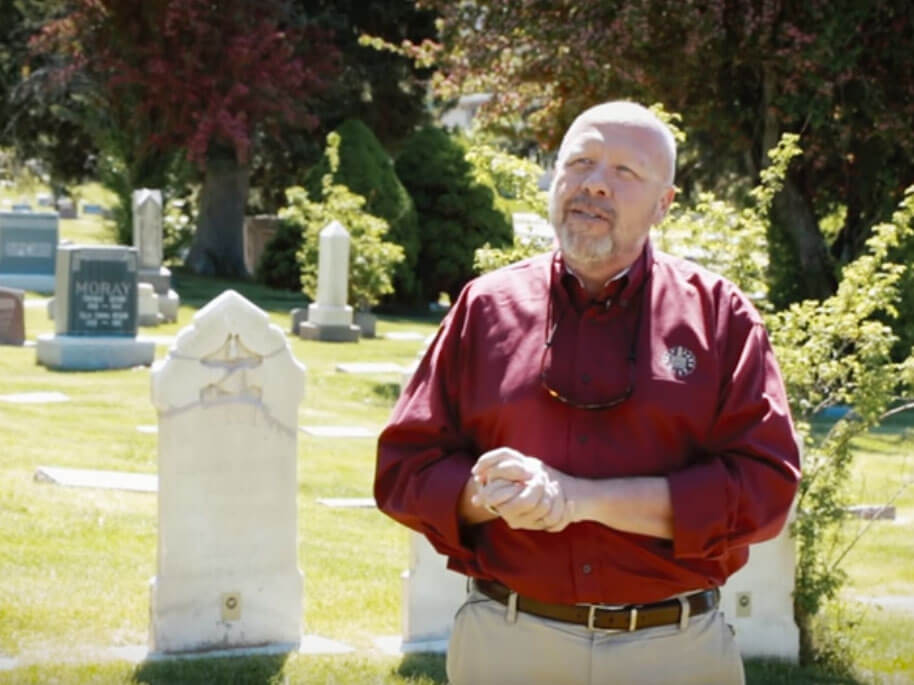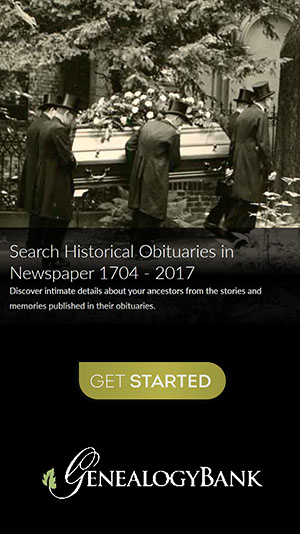Search Death Records (United States)
 U.S. Newspapers, 50 State Full Search (1690-present)
U.S. Newspapers, 50 State Full Search (1690-present) U.S. Obituary Database Search, (1696-present)
U.S. Obituary Database Search, (1696-present) U.S. Birth Announcements Database, (1700s-present)
U.S. Birth Announcements Database, (1700s-present)
What is a Cemetery Sexton?
By Steve Johnson
April 28, 2023
A cemetery sexton is a person who manages and maintains a cemetery. They are responsible for the day-to-day operations of the cemetery, which may include opening and closing graves, maintaining burial records, overseeing burials, and managing cemetery grounds.
The cemetery sexton may also work with funeral directors, families, and other cemetery personnel to ensure that burials are conducted smoothly and efficiently. In some cases, the cemetery sexton may also be responsible for selling burial plots and coordinating the sale of cemetery services.
In short, a cemetery sexton is the person in charge of a cemetery's day-to-day operations.

Cemetery Sexton stands on the grounds of his cemetery
What is the Origin of the Word "Sexton"?
The word "sexton" comes from the Old English word "seaxtan," which meant "guardian of a church." The term "seax" referred to a type of knife or dagger that was common in Anglo-Saxon times, and "tan" meant "to hold or possess."
Over time, the meaning of the word expanded to include someone who was responsible for the maintenance and care of a church or other religious building. Today, the term is commonly used to refer to someone who manages and maintains a cemetery, but it still retains its historical association with religious buildings.
Do All Cemeteries Have a Sexton?
Technically, yes, they all do. However, the title, "sexton" is mostly used by small cemeteries, rural cemeteries, or historic cemeteries.
Large, corporate-owned cemeteries often have a different organizational structure than smaller, independently owned cemeteries, and may use different titles for their personnel. In some cases, the term "sexton" may be seen as old-fashioned or outdated, and these companies may prefer to use more modern or professional-sounding titles for their staff.
For example, a large, corporate-owned cemetery may have a General Manager or Cemetery Manager who is responsible for overseeing all aspects of the cemetery, including maintenance, burial services, and customer relations. This person may then have a team of supervisors or technicians who report to them and handle specific tasks, such as groundskeeping or opening and closing graves.
In other cases, large cemeteries may use specialized titles for their staff, such as "Funeral Arrangement Counselor" or "Memorialization Specialist," to reflect the specific services that they offer.
Either way, every cemetery has someone who's in charge of operations, and technically that person is a "sexton", even though their work is worded under a different title.
Do Sextons Also Dig Graves?
Yes, and this is still a primary function of a sexton.
In smaller cemeteries or in rural areas, the sexton may be the person who performs all necessary tasks related to burials, including digging the grave, preparing the site for the interment, and closing the grave after the service is complete.
In larger cemeteries, however, the digging of graves may be handled by a specialized crew of cemetery workers or contractors, while the sexton oversees the process and ensures that all cemetery policies and regulations are being followed.
What Are Sexton Records?
Sexton records are official records kept by the sexton or cemetery caretaker that document the burials and interments in a cemetery. These records typically include information such as the name of the deceased, the date of burial, the location of the grave, and any other pertinent information related to the interment.
The records also indicate who purchased the plot and who currently owns the plot. They also keep records of payments and debts.
Sexton records can help families locate the burial site of their loved ones, and they can also be used for genealogical research or historical purposes. In addition, sexton records can be used to ensure that cemetery regulations are being followed, such as the appropriate spacing between graves and the proper handling of remains.
Many sexton records are now kept electronically, but in the past, they were often recorded in bound books or ledgers. These older records may contain valuable historical information and can provide insight into the development and history of the cemetery.
What Kinds of Information Can Be Found in Sexton Records?
The specific details recorded in sexton records can vary depending on the time period, location, and the practices of the cemetery in question, but some common types of information found in sexton records include:
- Name of the deceased
- Date of death
- Date of burial
- Location of the burial plot or grave site
- Cause of death
- Age of the deceased
- Occupation of the deceased
- Residence of the deceased at time of death
- Name and contact information of the person who arranged for the burial
Current ownership of the plot - Funeral home or mortuary that handled the arrangements
- Religious affiliation or any special requests or instructions related to the interment
How to Obtain a Copy of Sexton Records
The process for obtaining a copy of sexton records can vary depending on the specific cemetery and the policies and procedures in place. In general, however, there are a few different ways that you might be able to access these records:
-
Contact the cemetery directly: If you know the name and location of the cemetery where your ancestor or relative is buried, you can contact the cemetery directly to request a copy of the sexton records. Many cemeteries have administrative offices that can provide this information or direct you to the appropriate department or staff member.
-
Check with local historical societies or genealogy groups: Local historical societies or genealogy groups may have copies of sexton records or other cemetery records available for research purposes. These organizations can often be a valuable resource for anyone interested in local history or genealogy.
-
Search online: In some cases, sexton records may be available online through cemetery websites, genealogy websites, or other online databases. These records may be searchable by name, date, or other criteria, depending on the platform being used.
It's worth noting that in some cases, there may be fees associated with accessing sexton records or other cemetery records. Additionally, some cemeteries or historical societies may have restrictions on who can access these records, or may require proof of relationship or other documentation before releasing the information.
Search Interment.net
Submit a Transcription
Help genealogists worldwide research their family history!
- No cost to publish your transcription- You retain all rights to your work
- No one can edit, change, or delete your work

